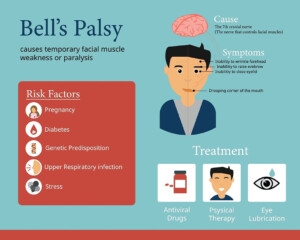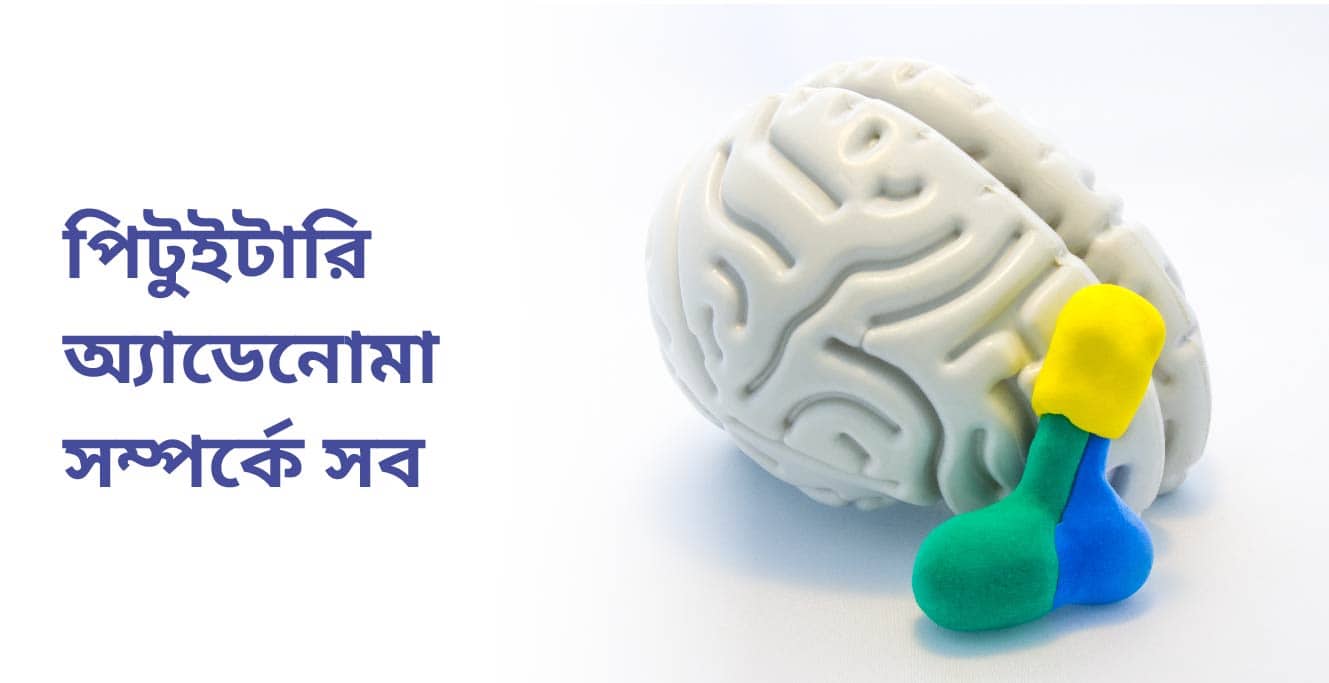
Bell’s Palsy: Causes, Symptoms, Diagnosis and Treatment

Table of Contents
- Bell’s Palsy Causes:
- Bell’s Palsy Symptoms
- Diagnosis of Bell’s Palsy
- Relation Between Bell’s Palsy and Fertility:
- Does Bell’s Palsy Occur in Pregnancy?
- Diagnosis of Bell’s Palsy in Pregnancy
- Causes of Bell’s Palsy in Pregnancy
- Treatment of Bell’s Palsy in Pregnancy
- Prevention of Bell’s Palsy in Pregnancy
- Wrapping Up
- FAQs
Bell’s Palsy is a condition where your facial muscles suddenly become weak or even paralysed. It is named after a Scottish surgeon, Sir Charles Bell, who first described it in the 19th century.
This occurs when the 7th cranial nerve, responsible for controlling the muscles of the face, becomes inflamed or compressed. It commonly affects people between 15 and 60 years of age, while it is rare in young children and older adults. Certain factors can increase the likelihood, like pregnancy, diabetes, upper respiratory infections, or the common cold and flu.
Symptoms can appear quickly, sometimes overnight, and you may feel pain or tingling on that side of your face. It can come as a surprise, but try not to panic. The good news is that most people suffering from this condition regain complete control of their facial muscles with time and proper care.
Bell’s Palsy Causes:

Bell’s Palsy causes aren’t fully understood. However, scientists link it to viral infections. If you have any of the following medical issues, it could lead to Bell’s Palsy:
- Chickenpox
- German measles
- Flu
- Cold sores and genital herpes
- Respiratory illnesses
- Mumps
- Hand-foot-and-mouth disease
The risk group for Bell’s Palsy includes:
- Pregnant women, particularly in the third trimester or a week after delivery
- People with an upper respiratory tract infection, like a cold or the flu
- Diabetic people
- People suffering from high blood pressure
- Individuals with weight issues or those who are obese
Bell’s Palsy Symptoms
Bell’s Palsy symptoms are very similar to a stroke. But in this condition, it will be restricted only to your face. In the case of a stroke, however, other parts of your body get affected as well. Here are some of the common symptoms of Bell’s Palsy:
- Facial drooping
- Trouble making facial expressions, such as smiling or closing an eye
- Drooling
- Pain around the jaw or behind the ear on the affected side.
- Increased sensitivity to sound on the affected side.
- Headache.
- Loss of taste.
- Variations in the quantity of tears and saliva produced.
If you observe any of the above symptoms, you should visit your doctor immediately. In most cases, Bell’s Palsy symptoms gradually subside over the next few weeks and may completely disappear after a few months. For pregnant women wondering how long Bell’s Palsy last in pregnancy, most recover within a few weeks to three months, although some cases may take longer.
Diagnosis of Bell’s Palsy

Although we have a clear picture of what Bell’s Palsy is, it requires careful evaluation and often a diagnosis of exclusion. It means that we need to rule out other medical issues to arrive at a positive diagnosis. You may experience facial paralysis as a result of an accident, a tumour, or Lyme disease as well. Here is how the diagnosis is done:
- Blood Tests: Doctors check for infections or underlying medical conditions.
- EMG (Electromyography): This helps measure the health and function of the facial nerves.
- Imaging Tests: MRI or CT scans can be done to ensure there are no structural problems involved, causing the facial paralysis.
Relation Between Bell’s Palsy and Fertility:
There is generally no direct link between Bell’s Palsy and fertility. However, there are a few indirect considerations:
- Hormonal Influence: In rare cases, pregnancy can trigger Bell’s Palsy due to hormonal changes or immune system shifts. This is usually temporary, and Bell’s Palsy during pregnancy does not affect fertility or the ability to conceive. We will learn about it more in the next section.
- Fertility Treatments: If someone undergoing fertility treatments experiences Bell’s Palsy, it may be related to other underlying factors (such as stress, immune responses, or viral infections) rather than a direct impact on fertility.
Does Bell’s Palsy Occur in Pregnancy?
Many ask, “ Is Bell’s Palsy common in pregnancy?”. Well, it is not that common, but it can happen during the third trimester. The reason for the same is not fully understood. However, it is said that the hormonal changes, fluid retention, and slightly weakened immune system during pregnancy can put extra pressure on the 7th cranial nerve. They control the facial muscles, leading to sudden weakness or paralysis on one side of the face.
It is normal to feel anxious, especially if the symptoms appear suddenly. The reassuring news is that, in most cases, the condition is temporary, and women gradually regain full facial movement with appropriate medical care. Treatments like corticosteroids may be considered safe, and doctors may monitor the situation closely. Emotional support from family and healthcare providers can make a huge difference in coping with this unexpected challenge while awaiting the joy of your baby.
Diagnosis of Bell’s Palsy in Pregnancy
The diagnosis of Bell’s Palsy during pregnancy follows a similar set of steps. However, extra care is required to protect both mother and baby. Tests and evaluations are chosen to be safe during pregnancy, focusing on confirming Bell’s Palsy while minimising any risk.
- Clinical Evaluation: The doctors evaluated the weakness and paralysis of the face to rule out stroke or tumours.
- Blood Test: This needs to be done to check risk factors like stage of pregnancy, infections, diabetes and more.
- Electromyography (EMG): Sometimes used to evaluate nerve function, if safe.
- Imaging Test: During extreme cases, MRI is suggested, as it is a safer alternative than CT scans during pregnancy.
Causes of Bell’s Palsy in Pregnancy
As earlier mentioned, Bell’s palsy in pregnancy causes is often linked with changes in hormone levels, fluid retention, and mild immune system suppression during pregnancy can put extra pressure on the 7th cranial nerve, which controls facial muscles. Here are the key contributing factors to answer your question, “What causes Bell’s palsy during pregnancy?”:
- Hormonal Changes: A woman faces shifts in oestrogen and progesterone during pregnancy, which can affect nerve function.
- Fluid Retention: Due to swelling, the facial nerve can feel pressure, resulting in Bell’s Palsy.
- Immune System Changes: There can be mild suppression during pregnancy that can increase the vulnerability to nerve inflammation.
- Pre-Existing Condition: Medical conditions like diabetes, viral infections, or hypertension can increase the chances of Bell’s Palsy during pregnancy.
Treatment of Bell’s Palsy in Pregnancy
There is no specific treatment for Bell’s Palsy. However, your doctor may recommend oral medication to reduce the effects of the symptoms. Everything is recommended to ensure the safety of both mother and baby. Easy care can speed up recovery and prevent complications. Here are the treatment approaches:
- Eye drops help to reduce eye irritation. If you have difficulty shutting the affected eye, wearing an eye patch may help protect your eye.
- Corticosteroids are prescribed in certain cases to reduce nerve inflammation. However, one shouldn’t go for it if the doctors have not prescribed it.
- Physical therapy can help maintain muscle tone and aid recovery.
- In rare cases where the Bell’s Palsy recovery is prolonged, your doctor may recommend minor facial surgery.
Prevention of Bell’s Palsy in Pregnancy
Bell’s Palsy during pregnancy cannot always be avoided, but adopting precautions for your general health and well-being may help lower your risk or lessen the severity of your symptoms. Because pregnancy can be a physically and emotionally taxing time, it’s especially critical to practise gentle self-care.
Here are some tips that can help:
- Control underlying medical conditions: Maintaining nerve health can be achieved by controlling diabetes, hypertension, or other long-term illnesses.
- Remain active in a safe manner: Regular, mild exercise helps increase circulation and general health.
- Reduce stress: Deep breathing, yoga, meditation, and other relaxation methods can help soothe the body and mind throughout pregnancy.
- Prevent infections: Wash hands often, avoid sick contacts, and stay up to date with vaccinations.
- Preserve your nerves: Sleep comfortably and avoid applying pressure to your head or face for extended periods of time.
Wrapping Up
Bell’s Palsy can feel sudden and alarming, especially during pregnancy, but the condition is usually temporary and highly manageable. Understanding its causes, symptoms, diagnosis, treatment, and risks involved can reduce anxiety. Most women recover fully with compassionate care, safe medications, and lifestyle changes.
Always remember that experiencing Bell’s Palsy is not a reflection of your overall health, especially when it happens to pregnant women. It is a medical condition that can be treated with the right guidance. Get in touch with our Bell’s Palsy specialists if you are facing any of these symptoms. They will ensure that with the help of the right treatment and regular monitoring, you can regain full facial function and overall well-being with confidence.
FAQs
Is Bell’s Palsy a mini-stroke?
Bell’s Palsy is neither a stroke nor is it caused by one. That said, the symptoms are similar to a stroke. However, unlike a stroke, your symptoms will be restricted to your face and perhaps parts of your head. Nevertheless, if you experience uncontrolled facial drooping or weakness in your facial muscles, you would do best to visit a healthcare provider. They will investigate the cause and evaluate your condition for suitable treatment.
Does stress cause Bell’s Palsy?
Medical practitioners usually link this condition to a viral infection. However, it is believed that stress or a recent illness could also be a potential trigger.
What to avoid if you have Bell’s Palsy?
Although there are no proven ways to prevent Bell’s Palsy, if you are diagnosed with this condition, you might get some relief by following your doctor’s recommendations, like taking oral medicine and using eyedrops or an ointment to provide relief for your eyes.
You may need to alter your eating and drinking routine until you see some Bell’s Palsy recovery signs. You can avoid drinking directly from a cup or glass and use a straw instead if your mouth is too dry. Getting lots of rest during this period is also vital, so avoid late nights and get enough sleep to keep your stress levels low.
How can I speed up recovery from Bell’s Palsy?
Although Bell’s Palsy recovery time differs from patient to patient, the symptoms reduce without treatment. However, your doctor will recommend a line of treatment that may alleviate your symptoms somewhat and perhaps speed up your recovery.
Your doctor is likely to recommend the following line of treatment for you:
- Steroids
You may have to take certain steroids. These are strong medicines that will alleviate the swelling of your facial nerves.
- Antiviral medication
The antiviral medication also seems to help with cases of Bell’s Palsy, although it isn’t quite understood how this works.
- Eyecare
Looking after your eyes is the most important part that may aid in speeding up the recovery from Bell’s Palsy symptoms. Because symptoms include dry irritation of the eyes, your doctor may recommend using eye drops to serve as artificial tears.
Can Bell’s Palsy lead to other problems?
Bell’s Palsy recovery time is shorter than many other serious health issues. This condition comes with a relatively good prognosis. According to estimates, about 85% of the cases may completely recover within three weeks. Residual facial weakness may continue for some people. Further complications in some rare cases include permanent damage to the facial nerve. Following Bell’s Palsy, there were rare cases reported of partial loss of eyesight. Other than the additional problems that can result from this condition, you may not find any other complications recorded.
Our Fertility Specialists
Related Blogs
To know more
Birla Fertility & IVF aims at transforming the future of fertility globally, through outstanding clinical outcomes, research, innovation and compassionate care.
Had an IVF Failure?
Talk to our fertility experts

 Our Centers
Our Centers



















